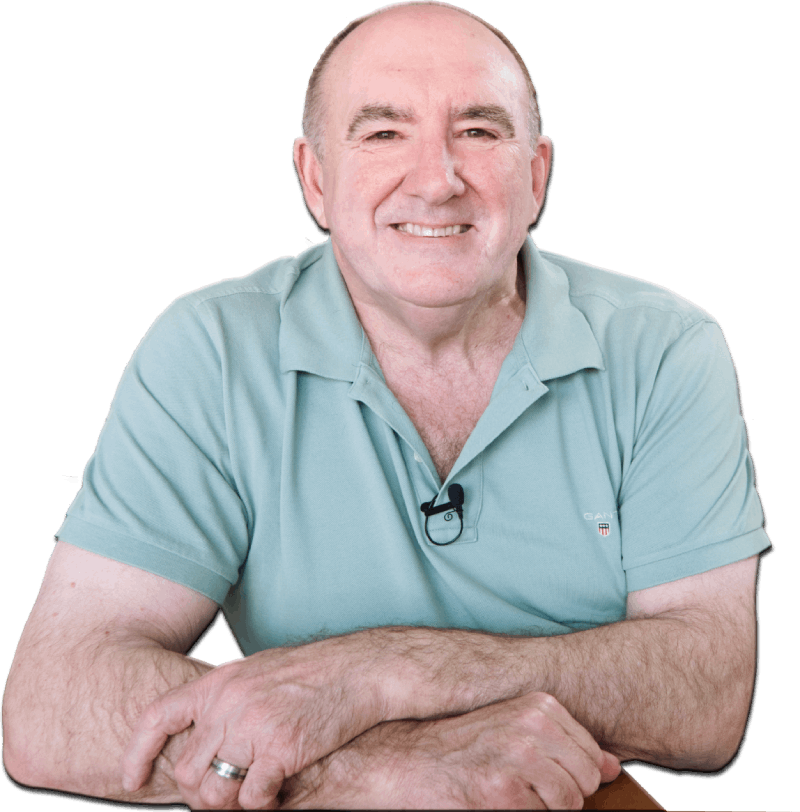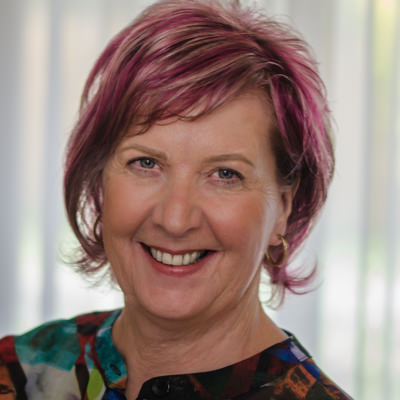LGBTIQA+ Inclusion in Deathcare
Take this course to learn how to provide appropriate deathcare to LGBTIQA+ people and help them and those close to them feel safe, included and respected.

Key Outcomes
- You’ll feel more confident when providing deathcare (dying, death and disposal) to LGBTIQA+ people.
- You’ll know how to make LGBTIQA+ people feel safe, empowered and valued in deathcare.
- You’ll understand common mistakes made in providing deathcare to LGBTIQA+ people – and how to avoid them
- You’ll gain greater knowledge of the language, history and culture of the LGBTIQA+ community.
- You’ll go away with tangible tips to help you be a respectful and LGBTIQA+ inclusive deathcare professional.
Prerequisite: No prerequisite for this course.
Who Should Take This Course?
➢ deathcare organisation staff
➢ death doulas
➢ hospice nurses
➢ hospital nurses
➢ hospice volunteers
➢ hospital volunteers
➢ physicians
➢ allied health professionals
➢ funeral directors
➢ funeral arrangers
➢ body transport staff
➢ funeral celebrants
➢ morticians
➢ mortuary staff
➢ embalmers
➢ funeral celebrants
➢ body transport staff
➢ embalmers
➢ funeral celebrants
➢ death doulas
➢ grief counsellors
➢ wills and estate lawyers
➢ anyone in the deathcare industry who wants to learn more about the LGBTIQA+ community
➢ deathcare academics
➢ deathcare researchers, incl. anthropologists, linguists, midwives
➢ cemetery trusts
➢ cemetery staff
➢ memorial park staff
➢ crematorium staff
➢ funeral caterers
➢ funeral florists
➢ stone masons
➢ deathcare ethicists and scientists
➢ deathcare consumer advocates
➢ deathcare associations – Social Care Australia, Australian Cemeteries and Crematoria Association, Australian Federation of Funeral Directors
➢ community palliative care providers
➢ cultural anthropologists
➢ morticians and mortuary staff
➢ medico-legal practitioners
➢ deathcare literacy advocates
➢ digital media practitioners
➢ end of life planners and educators
➢ medical educators
➢ medical students
➢ public servants in registries of births, deaths and marriages
Become a LGBTIQA+ Inclusive Vendor
Let’s understand your desired learning objectives and we can tailor our course to meet them. Please book a Zoom meeting today!
Featured Reviews

Went away a far more informed Celebrant (and person)
I am always conscious of delivering a service (wedding or funeral or any other celebration of life) with the correct protocol and respect for my clients (regardless of gender). When marriage equality was legalised in Australia in 2017, I was very keen to learn as much as possible (and then some) about the LGBTQIA+ community. As soon as I was aware of your masterclasses I enrolled pronto – what an investment. Learned so much, your style, knowledge, and delivery of the classes was excellent. At each session, I felt very comfortable and at ease and went away a far more informed Celebrant (and person). When I was approached to deliver my first Gay Memorial Service for a very popular personality, I didn’t hesitate because I had the tools to communicate with the family and having you as my mentor to ensure the service was written with dignity, grace and love made my delivery a great comfort to the mourners. Even though you were not present, I felt you cheering me on. I would never have been able or confident to do this without attending your Masterclasses. Highly commend and recommend thank you, Bronte.
Training format
Face-to-Face
-
Take the course face-to-face
-
4 x 150 min workshops
-
10-12 hours in total
-
2 half days, a week apart
-
minimum of 8 to conduct course
-
interactive, engaging
-
When completed, gain ongoing access to the course content online
-
Get access to additional scheduled online support (Q&A sessions)
-
Course fee: POA
Live via Zoom
-
Take the course live via zoom
-
8 x 90 min workshops
-
10-12 hours in total
-
timing negotiable
-
minimum of 6 to conduct course
-
interactive, engaging
-
When completed, gain ongoing access to the course content online
-
Get access to additional scheduled online support (Q&A sessions)
-
Course fee: POA
Course Description







Are you using LGBTIQ+ inclusive language in your deathcare for LGBTIQ+ people, as well as in your workplace, events or meetings? What about on your website and in your social media posts, and the emails etc you send? Are they accessible and truly inclusive for everyone?
LGBTIQ+ awareness is crucial if you want to build a safe, inclusive space for everyone in the deathcare work you’re involved in.
In this course, you’ll learn about the best ways to make LGBTIQ+ people feel comfortable, safe and valued as they undergo deathcare; and you’ll also learn about some of the language, history and culture of the LGBTIQ+ community.
Here’s a more detailed breakdown of what you’ll learn:
- Why you’re here – benefits, objections and outcomes of being inclusive
- Quick test – what do you know?
- Heteronormativity and deathcare
- The relationship between LGBTIQ+ people and deathcare – barriers
- Language 101 – key LGBTIQA+ terms
- The LGBTIQ+ acronym
- Pronouns – why they’re important; how to use them
- Terms to avoid using, and why
- LGBTIQ+ flags – symbolism
- ‘In the closet’ and ‘coming out’
- Where are the gay people in Victoria? How old are they and what do they earn?
- How’s your gaydar?
- LGBTIQ+ stereotypes and their effect
- Those offensive little questions
- Milestones in various phases of LGBTIQ+ people’s lives
- Taboos affecting LGBTIQ+ people in deathcare
- Equality, equity and liberation – an explanation
- Legal rights of LGBTIQ+ people, particularly in deathcare
- Major events in the struggle for rights – US and Australia
- Let’s talk straight (or not)
- How safe is it in various situations for LGBTIQ+ people?
- Guided fantasy – walk in our shoes
- Mental health statistics of LGBTIQ+ people – implications for deathcare providers
- What are the pressure points for your LGBTIQ+ deathcare organisation?
- Sensitivities and concerns that LGBTIQ+ people may have in deathcare
- That first phone call from an LGBTIQ+ person enquiring about deathcare – how to respond
- Dealing with the politics of LGBTIQ+ people facing end-of-life
- Protecting the legal rights of LGBTIQ+ people in deathcare
- How the memories of dead LGBTIQ+ people continue to affect the lives of living people
- What could possibly go wrong at a non-inclusive deathcare facility?
- Impacts of your deathcare facility not being LGBTIQ+ inclusive
- Institutional barriers in deathcare for LGBTIQ+ people
- How to queer grief and mourning of LGBTIQ+ people
- LGBTIQ+ health check of your deathcare website and business
- Tangible tips to help you be an LGBTIQ+ inclusive deathcare facility
- Developing an LGBTIQ+ inclusion policy or charter
About the trainer

Bronte Price
The person who will train you is Bronte Price (he, him), a cis gay man, who is not only a qualified trainer but who also works in the wedding industry. He’s a registered marriage celebrant and is qualified to train other marriage celebrants. Bronte came out as a gay man at the age of 42, having been married to a woman and having had four sons. He lives with his husband, Clint, and their rescue kelpie, Bingo.
It’s Bronte’s lived experience as both a straight man and a gay man that informs this LGBTIQA+ inclusion course. He understands the pressures on people who know they are LGBTIQA+ but can’t come out for a range of reasons; he’s experienced the stigma of being labelled ‘homosexual’ when to be so was a criminal offence; as a gay man, he’s faced harassment and discrimination from family members and in the workplace; and he continues to assist LGBTIQA+ people at end-of-life who struggle with not being able to be their authentic selves.
He’s on a mission to help deathcare professionals provide LGBTIQA+ people with rainbow options in their deathcare. As a former senior public servant, Bronte understands how to treat people with respect. He knows how to create safe spaces for LGBTIQA+ people seeking deathcare and for those who undertake his LGBTIQA+ Inclusion Training.
Get started on your journey to be a LGBTIQA+ Ally!
If you’re wanting to do the right thing in working with LGBTIQA+ people in deathcare but aren’t sure of what the right thing is, or you’re worried about saying, doing or assuming the wrong thing, then this course is for you.

